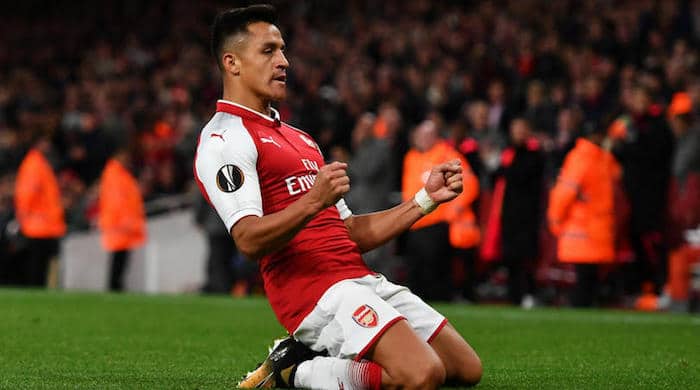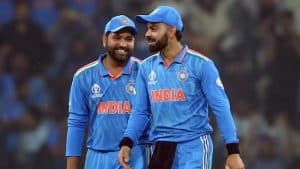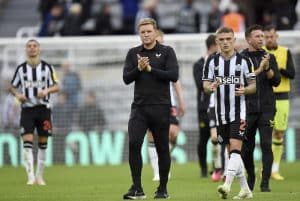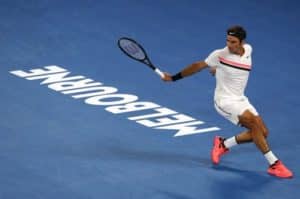For Arsenal Football Club, there may just be life after Alexis Sanchez. Perhaps somewhat counter-intuitively, losing their best player might just be a good thing for the Gunners, writes RICHARD BROWN.
Losing a world-class player such as Sanchez, especially to an arch-rival, will smart – no matter how vehemently Arsenal supporters deny this and try and convince you that, as a matter of fact, they’re happy to see the back of him.
After Sanchez made it clear early in 2017 that he had no intention of signing a new contract at Arsenal, his eventual departure was inevitable and most Arsenal fans had made their peace with it.
The powers that be at the club could have handled it a lot better, of course. Having inexplicably let his contract run down to its last six months, they could’ve sold him in the English summer for upwards of £60-million, but instead they declared no intention of letting him leave – until the last day of the summer transfer window, that is, when their resolve suddenly buckled and they were willing to let him go to Manchester City.
That only then failed because Arsenal couldn’t get a replacement for Sanchez in time, mooted to have been Monaco’s Thomas Lemar, who reportedly didn’t fancy a move to the Emirates. Arsene Wenger must have known what a toxic environment he’ll be creating by first agreeing to let his star player go to his former Barcelona coach Pep Guardiola at Man City, and then reneging on that at the last minute. Arsenal’s transfer dealings were, again, a hot mess.
At the time, perhaps a touch optimistically, it was argued that Sanchez, being a consummate professional, wouldn’t allow the last-minute failed transfer to his desired club impact his performances or have a negative effect in the Arsenal dressing room, and that holding on to their best player could only bolster Arsenal’s chances of competing for the league.
In reality, though, the muted celebrations from his teammates whenever he scored, his overall drop in performance compared to last season, and the conspicuous lack of well wishes on social media when Sanchez finally did leave, tell their own story. His mere presence at the club, and extreme individualistic play, had become impediments to the team’s progress. But since his move to Manchester United was confirmed, a burden seems to have been lifted and the air around the Emirates almost seems a little less stuffy.
The last two results, although a tiny sample, have gone some way to prove this. The first being the league game against Crystal Palace, in which a 20-minute masterclass from the Arsenal attackers produced four goals and effectively killed the match in the first half; and the second being the League Cup semi-final against Chelsea on Wednesday, which saw the Gunners start a bit sketchily, conceding early, but didn’t allow their heads to drop and with a slight formation change, roared into life and took control of the tie, winning relatively comfortably in the end with a 2-1 scoreline.
So, apart from the uncomfortable fact that Sanchez in the end opted for a move to hated northern rivals Manchester United and will now play under Jose Mourinho – a manager who provokes ire among Arsenal supporters like no other – and that he will undoubtedly improve their already very talented squad; his departure might be the catalyst that this Arsenal team needs to kickstart their season and their bid for a Champions League spot.
Firstly, his exit opens the door and frees up some wages for new recruits. Of course, Henrikh Mkhitaryan was the makeweight in the Sanchez transfer – Mourinho happy to let the former Borussia Dortmund player go after a somewhat disappointing 18-month spell at Old Trafford. Mkhitaryan appears to be a bit of a ‘Goldilocks player’ – his environment, manager and team need to be just right for him to flourish, which of course he did at Dortmund under Thomas Tuchel when he and Pierre-Emerick Aubameyang combined to such devastating effect. It was his pace, perfectly weighted passes, playmaking and eye for goal that caught the eye of the Man United manager in the first place, but he couldn’t replicate his form in England and proved largely inconsistent.
However, at Arsenal – particularly under the wing of Wenger who, despite his well-documented shortcomings, still has an unmatched capacity to foster players, give them confidence and get the best out of them – Mkhitaryan might just find his porridge to be just right. The other player that Arsenal are trying to get in the door is the aforementioned Aubameyang, who – if the transfer happens – Arsenal fans will hope will help rekindle Mkhitaryan’s form and recreate those bountiful Dortmund days.
Secondly, with Sanchez no longer dominating Arsenal’s attack, constantly demanding the ball and tossing his toys when every play doesn’t go through him, the rest of the Arsenal forwards can perhaps play a bit more cohesively and, to use one of Wenger’s favourite terms, with a bit more solidarity. Alexandre Lacazette perhaps stands to gain the most from the Chilean’s departure. The French international tends to make very clever runs in behind defenders but his teammates were either blind to them or simply ignored them and, perhaps out of habit, repeatedly opted to pass the ball to Sanchez instead. Lacazette and Sanchez also didn’t combine well, and it’s rather telling that only one of the Frenchman’s goals this season was assisted by Alexis – a rebounded effort off the bar. Alex Iwobi also seems to have been playing with new verve and a bit more freedom in the absence of the Chilean – his performances against Crystal Palace and Chelsea particularly impressive.
Thirdly, Arsenal under Wenger have always been known to play intricate, flowing football in a pass-and-move system that regularly involved all of the outfielders. It was sometimes effective, sometimes not, but always beautiful to watch. Alexis, despite his world-class quality and moments of individual magic, was detrimental to the flowing football Arsenal used to be famous for. His gung-ho attitude, determination to take the game by the scruff all on his own, tantrums when his teammates messed up, not to mention his terrible record of losing the ball 30 times per match, were not conducive to the ‘Arsenal way’. Incidentally, I personally think he’s the perfect Mourinho player and will fit right in at his new club.
So, with the Chilean and his Insta-famous dogs settling down in Manchester, how will the Gunners potentially line up after the January window closes? Last season, to shake his players out of their slump, Wenger opted for a three-man defence. The new system was so unlike anything Wenger had employed in years before, that the freshness of it seemed to return some vigour to his charges. So much so, that they managed to blow Premier League champions Chelsea away in the FA Cup final. But that has also gone a bit stale this season, and it’s my suspicion that Wenger still favours a four-man defence, as it allows him to play more attackers. After all, defence has never been Wenger’s greatest priority and he prefers to have as many attackers on the pitch as possible.
With Petr Cech in goal, Wenger’s first choice defenders include Hector Bellerin, Laurent Koscielny, Shkodran Mustafi and the formidable Nacho Monreal. Sead Kolasinac has taken a backseat, for now. In central midfield, the rejuvenated Jack Wilshere starts, and for lack of better options he’ll persist with Granit Xhaka. Mesut Ozil will continue to weave his magic in the No 10 position, and will be more than willing to provide service for a front three combination of Lacazette (likely on the left), Aubameyang (through the middle) and Mkhitaryan (on the right).
For Wenger, as he admitted in a recent interview, it’s often as simple as having all his best players on the pitch regardless of system or opposition and to let them run free. And, should the Aubameyang transfer go through, the above XI will undoubtedly be his best. In that attacking quartet, Arsenal will have enough firepower to compete with the league’s best, and Arsenal supporters have every right to be excited of their chances of breaking into the top four, and perhaps even winning the Europa League.
There might be life after Sanchez after all.





